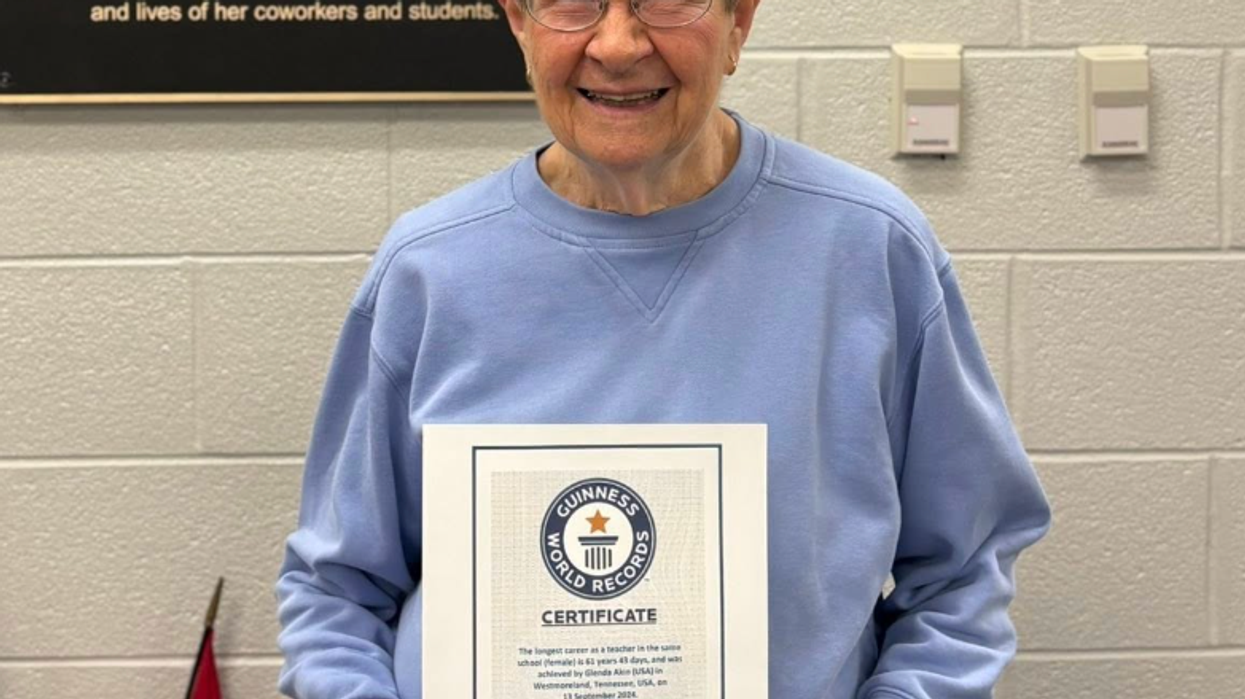The U.K. is trying to reach its goal of net-zero emissions by 2050, but aviation may become the biggest source of greenhouse gas emissions in the U.K. by that same year. A new study commissioned by the Committee on Climate Change (CCC) and conducted at the Imperial College London says that in order for the U.K. to reach its target, aviation can only see a 25% increase, and they've got a very specific recommendation on how to fix it: Curb frequent flyer programs.
Currently, air travel accounts for 2% of global greenhouse gas emissions, however that number is projected to increase for several reasons. There's a growing demand for air travel, yet it's harder to decarbonize aviation. Electric cars are becoming more common. Electric planes, not so much. If things keep on going the way they are, flights in the U.K. should increase by 50%.
Nearly every airline in the world has a frequent flyer program. The programs offer perks, including free flights, if customers get a certain amount of points. According to the study, 70% of all flights from the U.K. are taken by 15% of the population, with many people taking additional (and arguably unnecessary) flights to "maintain their privileged traveler status."
"Aviation has so far enjoyed generous tax treatment despite a large proportion of flights being taken by a small, wealthy segment of the population," the report said. "Given that there is a finite budget of carbon emissions allowable if global warming is to be held below 1.5 degrees, the highly uneven distribution of emissions due to flying raise equity concerns."
RELATED: Greta Thunberg urges people to turn to nature to combat climate change
In addition to the suggestion of introducing "regulation to ban frequent flyer reward schemes that stimulate demand," the study suggested an "air miles levy." It's basically the opposite of a frequent flyers program. The tax would increase based on how many miles someone flew, rather than how many flights someone took. The logic behind it is that carbon emissions from one long flight could be higher than emissions from several short flights. Unlike a flat fuel tax, the air miles levy would penalize frequent flyers without penalizing moderate-amount flyers, such as those who only fly to visit family around the holidays.
The researchers also wanted to see airlines inform passengers about their flight's emissions in a way that could be easily understood.
The proposal was not without its detractors. While the recommendations were made for the U.K., something similar would be harder to implement in the U.S. "The total annual economic impact of such a reduction the U.S. alone is difficult to calculate, but clearly it would create a noticeable reduction in economic growth," Dan Reed wrote in Forbes. "Western Europe has very highly developed rail and ferry networks that make it both possible and reasonable for many travelers, especially those not squeezed by urgent time demands, to choose alternate, slower methods of travel. In the U.S. that's simply not possible for most people."
RELATED: No, climate change protesters did not leave behind a bunch of trash, despite what a viral photo claims
The study didn't stop with aviation and program perks. It also examined which lifestyle changes can reduce emissions, and how this should affect policy. "These changes need not be expensive or reduce well-being, but they will not happen at the pace required unless policy first removes obstacles to change in markets and consumer choice," the report said. The study called for "high impact shifts in consumer behaviors," not "small and easy changes" that were once recommended to British citizens.
Some of the suggestions the report had included funding vegan and plant-based cooking classes to encourage people to eat less meat and dairy, legislation that discourages restaurants from serving too large portions, and labels on food products that show how much the item affects the environment. The CCC said it did "not agree with all the recommendations," although it didn't say which ones.
















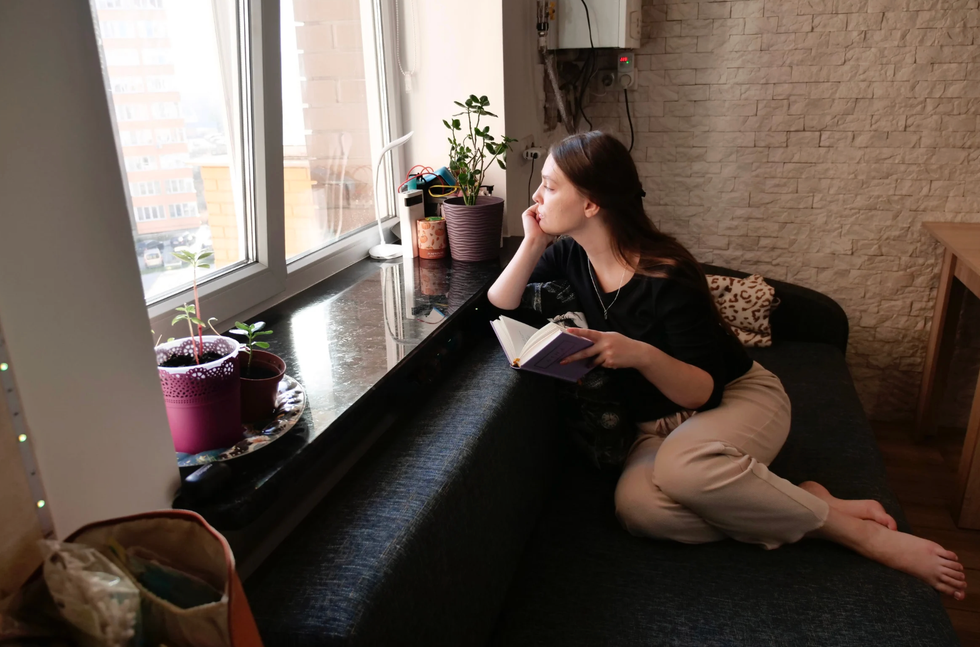 A woman relaxes with a book at homeCanva
A woman relaxes with a book at homeCanva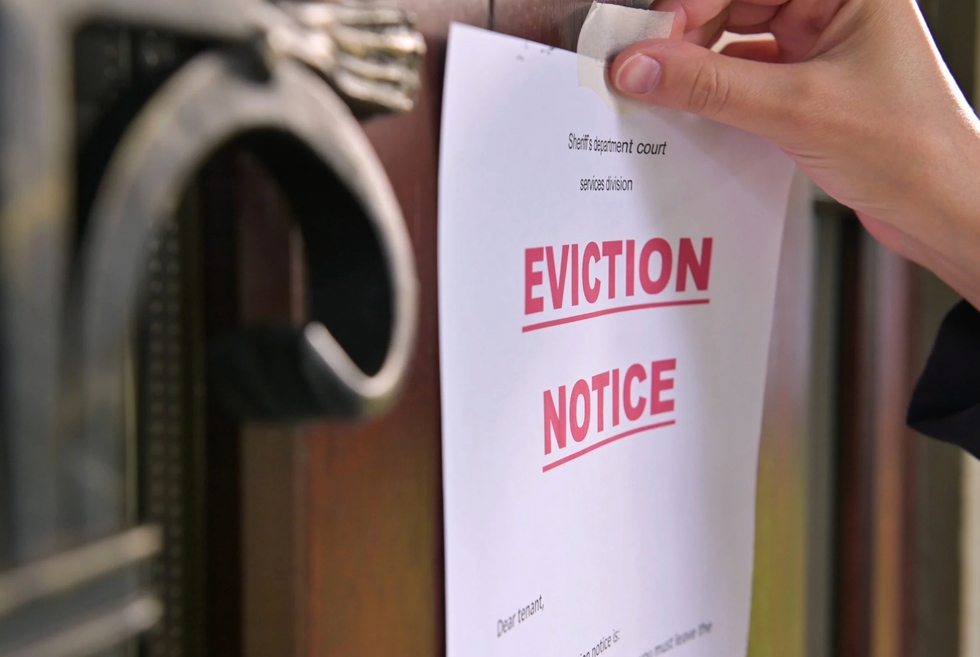 An eviction notice is being attached to a doorCanva
An eviction notice is being attached to a doorCanva Gif of Kristen Bell saying 'Ya basic!' via
Gif of Kristen Bell saying 'Ya basic!' via 
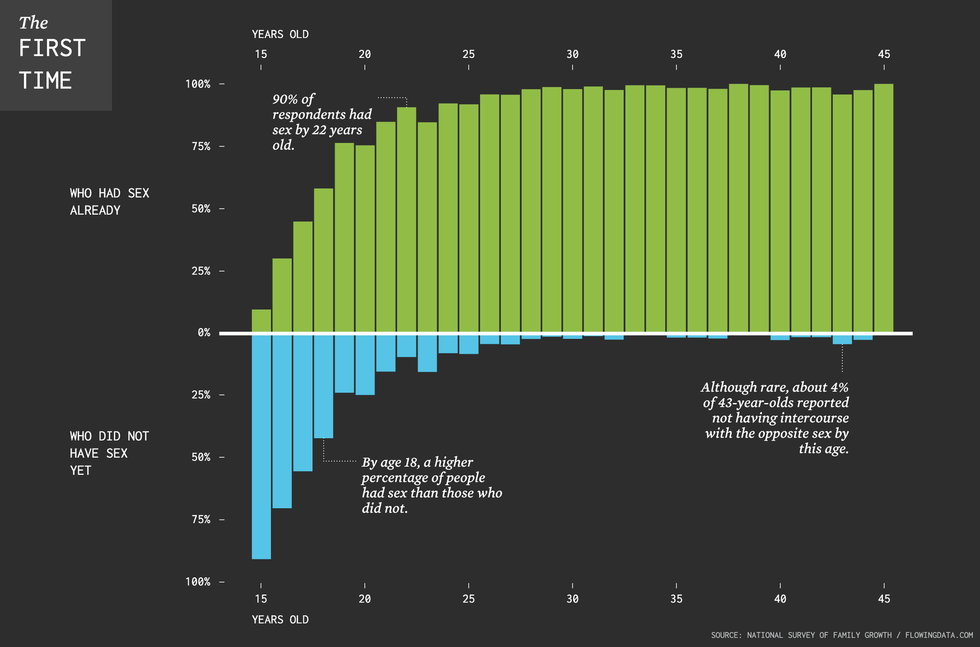 The chart illustrates that between ages 16 and 20, roughly half the population loses their virginity. By age 22, 90% of the population has had sex.
The chart illustrates that between ages 16 and 20, roughly half the population loses their virginity. By age 22, 90% of the population has had sex. A group of young people hold their phonesCanva
A group of young people hold their phonesCanva
 (LEFT) Judy Garland as Dorothy Gale and (RIGHT) Ray Bolger as Scarecrow from "The Wizard of OZ"CBS/
(LEFT) Judy Garland as Dorothy Gale and (RIGHT) Ray Bolger as Scarecrow from "The Wizard of OZ"CBS/ 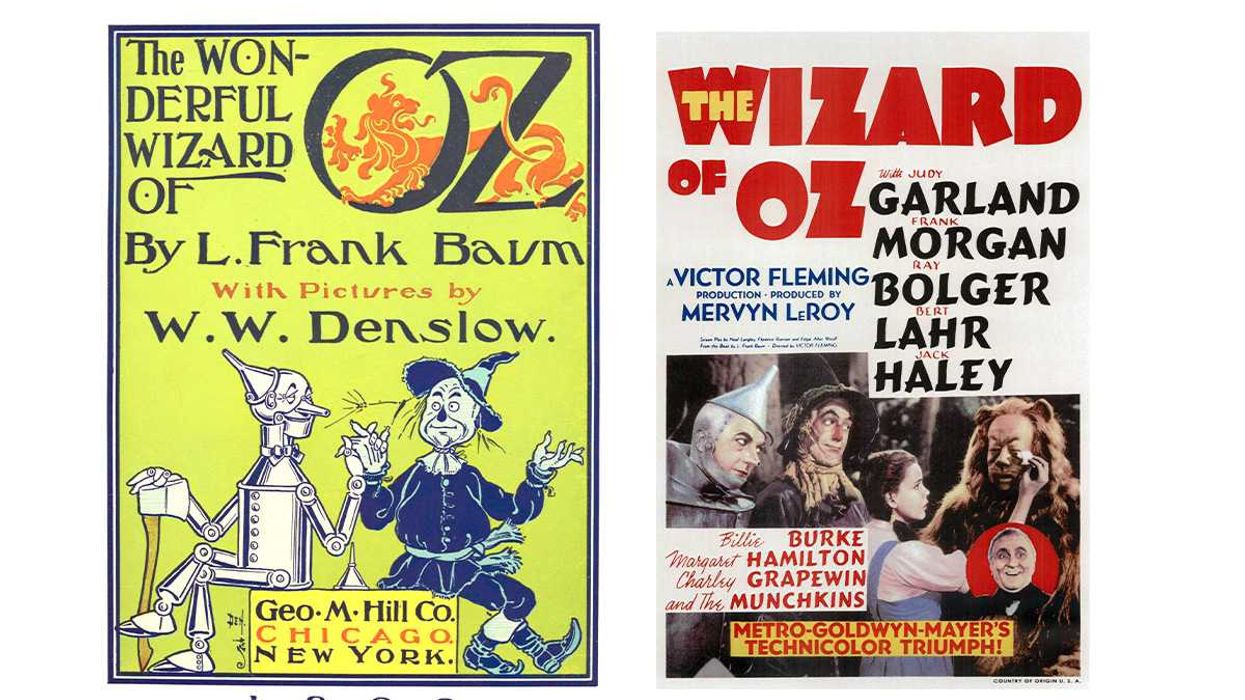 (LEFT) The Wonderful Wizard of Oz children's novel and (RIGHT) The Wizard of Oz movie poster.William Wallace Denslow/
(LEFT) The Wonderful Wizard of Oz children's novel and (RIGHT) The Wizard of Oz movie poster.William Wallace Denslow/ 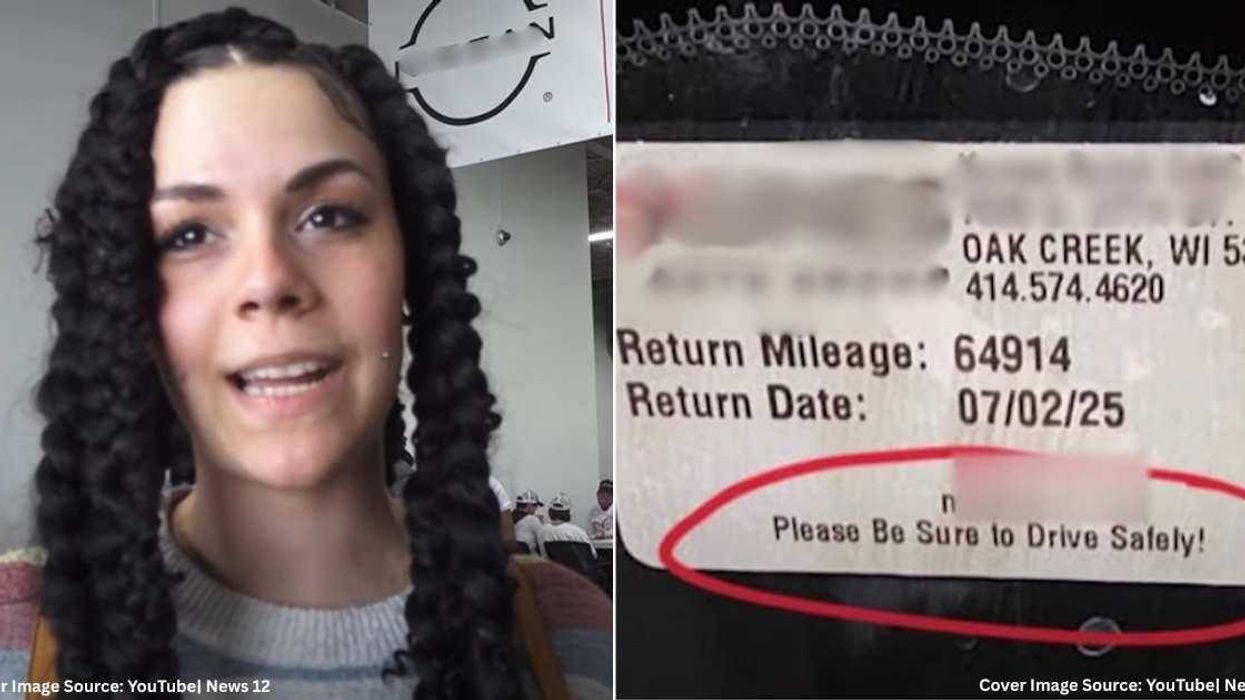
 A frustrated woman at a car dealershipCanva
A frustrated woman at a car dealershipCanva Bee Arthur gif asking "What do you want from me?" via
Bee Arthur gif asking "What do you want from me?" via 
 A couple on a lunch dateCanva
A couple on a lunch dateCanva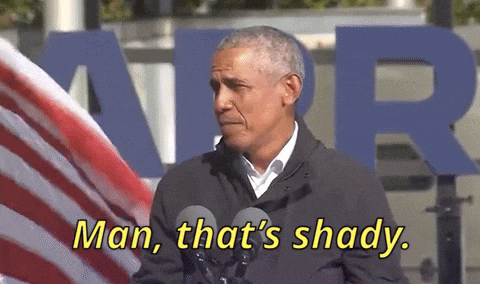 Gif of Obama saying "Man, that's shady" via
Gif of Obama saying "Man, that's shady" via 
 Elegance in red.Photo credit:
Elegance in red.Photo credit:  An older woman shows off some bling.Photo credit:
An older woman shows off some bling.Photo credit:  A woman enjoys a beautiful day. Photo credit:
A woman enjoys a beautiful day. Photo credit: 